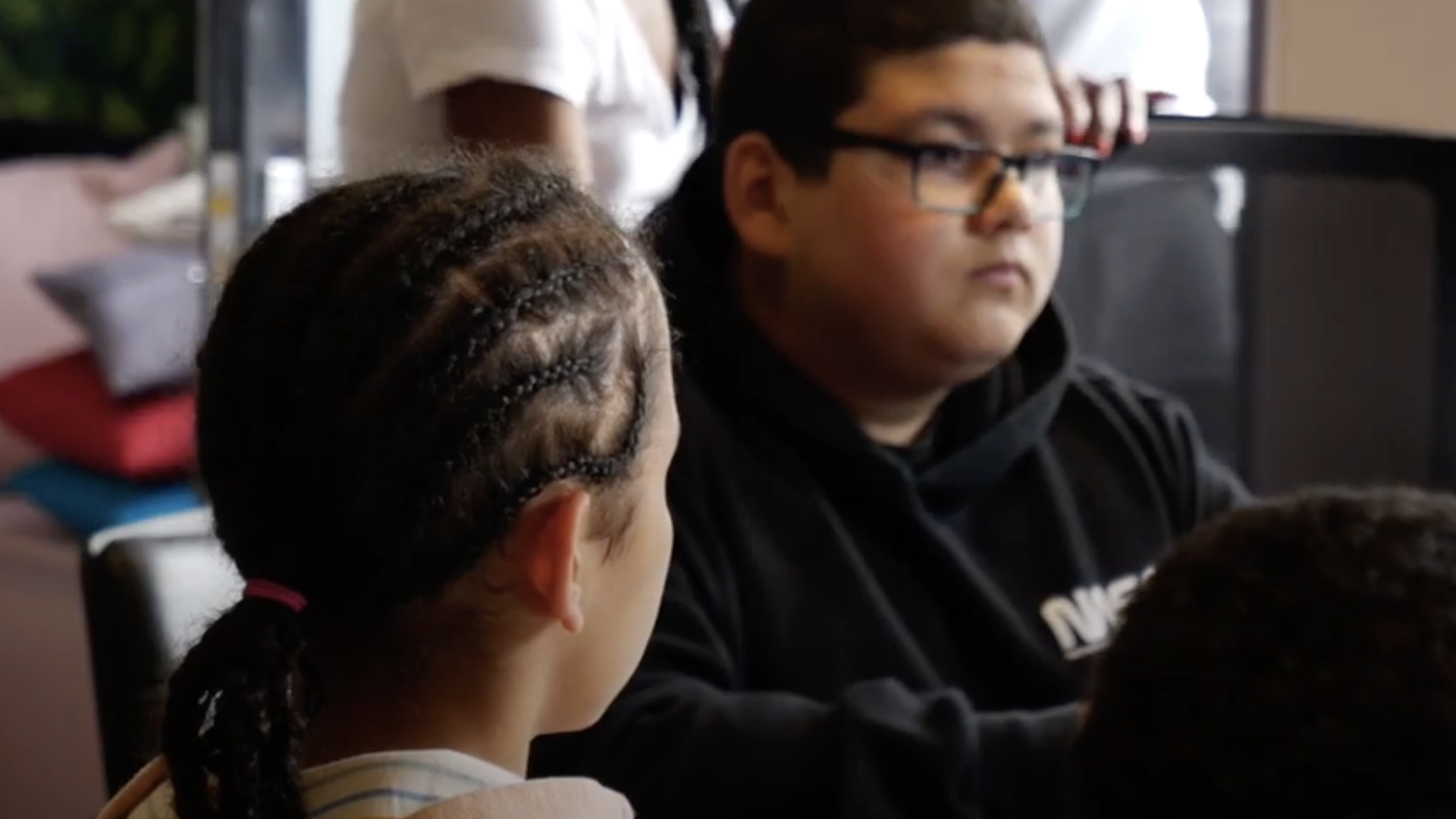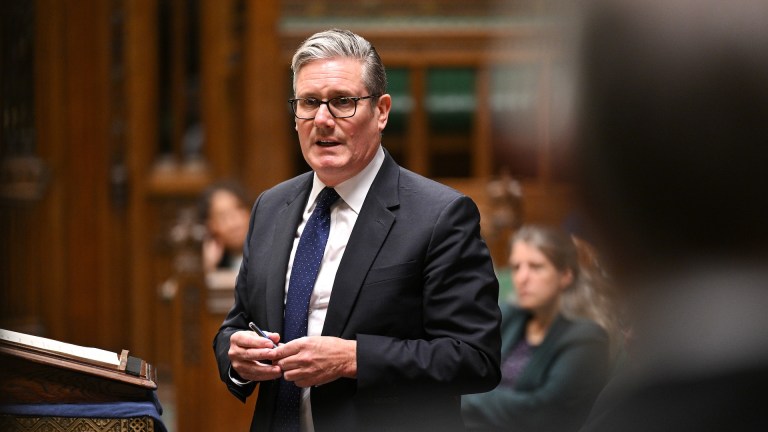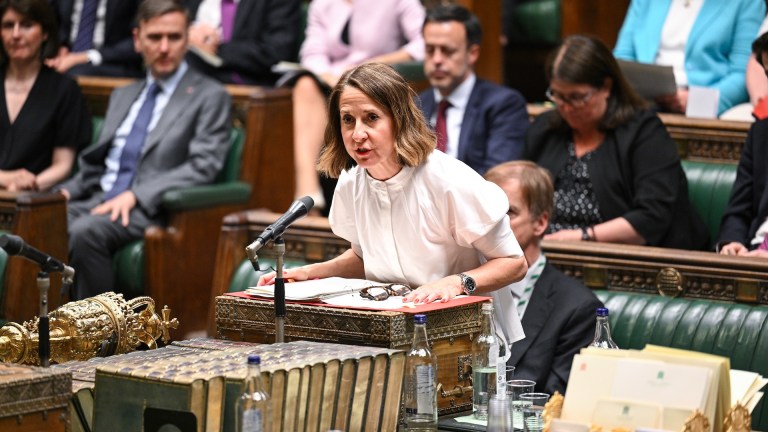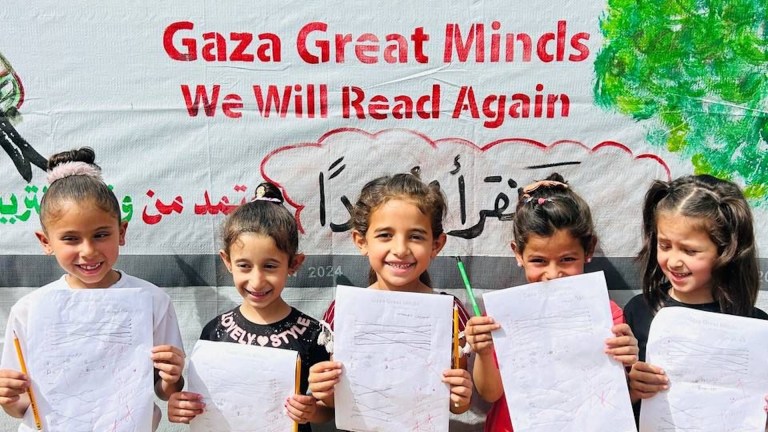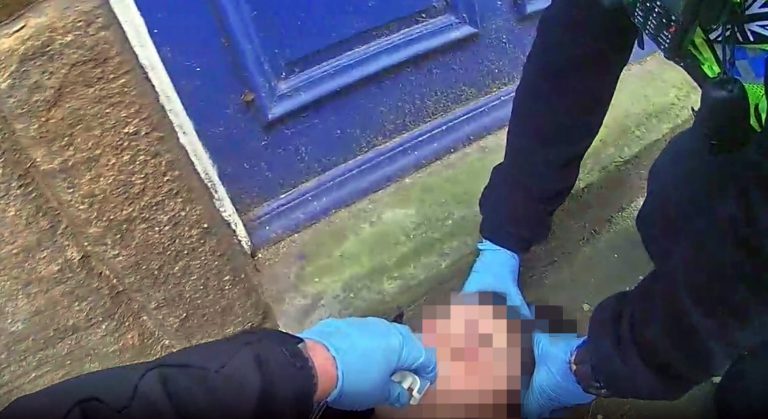Children on pupil premium – those are kids from the most disadvantaged backgrounds – face suspension or exclusion at rates three times higher than their peers.
They also are more likely to struggle with their mental health. When they start secondary school, their mental health wellbeing score is around 10% lower on average than their fellow students.
“It feels so wrong,” Dennis says. “Everyone needs to be respected. Everyone has tough times. Nobody has a perfect life. People shouldn’t be treated differently just because they have a poor background.”
Laurence Guinness, chief executive of the Childhood Trust, adds: “This is a form of discrimination. What we’re seeing is discriminatory.
“Just because you’re from a low-income family, it shouldn’t mean that your education is also disadvantaged, because that then just perpetuates the cycle of poverty.”
At Dennis’s school, a blazer costs £170. “It’s too much,” he says. Families also have to buy laptops, scientific calculators, stationery and more. “It just adds up.”
Advertising helps fund Big Issue’s mission to end poverty
“Some people are just living paycheck to paycheck. They can’t sustain themselves and afford their basic needs.”
Dennis recalls being in his classroom and the teacher asking whether they had eaten breakfast that morning. Only half of the class put their hands up.
One of Dennis’s peers told him he thought he had failed his SATs test because he was “so hungry he couldn’t concentrate”.
“I was just so flabbergasted,” Dennis says. “They could have failed. That could of been their future and their life at secondary school.”
Around 89% of charities surveyed by the Childhood Trust reported inadequate nutrition among the 310,877 children they support, leading to malnutrition, obesity and chronic illnesses that impair educational engagement.
“I completely agree with what Dennis said,” Hanna remarks. “If you don’t have a good breakfast, then it’s very hard to concentrate and to focus on what you are doing because you can always hear your stomach growling.”
Advertising helps fund Big Issue’s mission to end poverty
New analysis from the Child Poverty Action Group (CPAG) shows that there are 900,000 children living in poverty who are not eligible for free school meals.
That’s because entitlement is so restrictive. For a family on universal credit to qualify, their combined household income must be £7,400 a year or less excluding benefit payments.
The Childhood Trust is calling for expansive policy changes, including greater access to early childhood education, integrated health and education policies, more free school meals, affordable housing initiatives, and comprehensive school-based health services.
Guiness says: “We need a commitment to eradicate poverty in this country. We need to be honest about the impact of disadvantage of not having enough free school meals, not having enough material in schools that children need: books, pencils, laptops, uniforms, clothes really basic stuff.
“The housing crisis across the country needs to be addressed. These are the fundamentals of a prosperous society – that everyone has has a decent place to live, a reasonable level of income, nobody goes hungry.”
Most charities (84%) documented overcrowded living conditions for the children they support, exposing them to high stress levels that negatively impact learning.
Advertising helps fund Big Issue’s mission to end poverty
GCSE results in 2023 for disadvantaged pupils were at a record low since 2011. Only 25% were grades of five or above compared to 52% for non-disadvantaged pupils.
The Big Issue is also calling for a clear commitment to ending poverty from the next government. Its Blueprint for Change sets out a series of policy recommendations, including ensuring that universal credit is enough so that people can afford the essentials and expanding free school meals to all school children.
Guinness adds: “This isn’t some kind of paradise utopia that we’re trying to dream. It’s well within the grasp of of enlightened politicians to assure a fairer, more equal distribution. And what we’ve seen over the last government has been a worsening of the child poverty landscape, and children are getting a raw deal.”
Find out more, including how to support The Childhood Trust, here.
